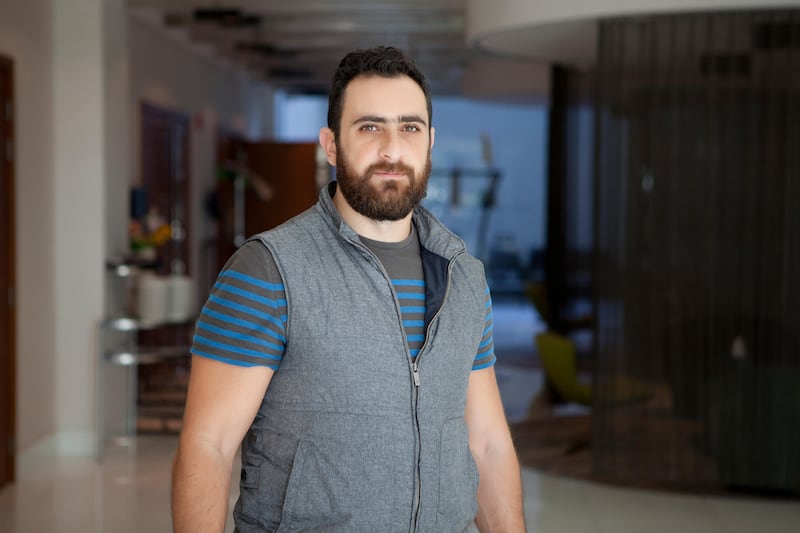One of the more-daring Arabic novels of recent times is 2015's The Bride of Amman by Jordanian writer Fadi Zaghmout. Revolving around the lives of four women and one man, the novel discusses the strict gender roles followed by a Jordanian society governed by strong tradition and taboos. Speaking before his in-conversation session as part of the Literathaus at Nadi literary salon series at Dubai's Al Serkal Avenue on Saturday, Zaghmout talks about his move from blogger to best-selling novelist.
The Bride of Amman became a bestseller in Jordan before gaining popularity across the Arab world. What do you put the reaction down to?
It talks about a struggle I think everyone in that society can relate to. In Jordan, I would say there is a big obsession with marriage and strict gender roles. Then there is the pressure on women who are told to get married before the age of 30. I think it is a way for society to regulate sexuality. The problem is that they overdo it to such an extent that it strangles everyone.
Before The Bride of Amman, you cultivated a following on your current-affairs blog, The Arab Observer. Was there a link between the blog and the novel?
Yes, in that the idea for the novel mostly came from there. I started the blog around 2006 and I began writing about issues such as gender equality and the struggles of Arab women then. I discussed these themes in short stories and screenplays. They helped me get the story and its structure in my head before I began writing the book. The idea to then move towards a book came from myself wanting to reach an even wider audience. I also felt that not many books from Jordan discussed these issues, so this was a good chance to do that.
Did the move from blog to novel require a change in writing style?
Not really. I think that is because it was my first novel, so I wasn’t very critical of myself. I just wrote it from my heart because these were issues I wanted to address. People criticise me today for my writing style in that book. They said the Arabic I used was too simple. But I think that’s what made the book reach so many people. I guess some people are used to a heavier Arabic language.
The English translation of the novel two years ago meant you were able to discuss your work with an international audience. How was that experience?
It has been really interesting. I travelled to London and did book signings in several English cities. It was actually much easier than when I was discussing the book in Jordan, because I was criticising our society. But in the UK, I was talking negatively about my society and that made me feel bad.
As a Jordanian, did you feel that you had to present a good image of your country?
It was more to do with the fact that the book was meant to be for a Jordanian and Arab audience. I wanted to critique and issue a wake-up call to us. But to talk to foreigners about it felt weird. But it was helpful for them also. Some people in those sessions in London said it was helpful to hear me because that was how their society was 50 or 60 years ago. They said it was helpful for them to remember in order to protect their society’s gender equality.
There are plenty of female Arab writers whose feminism plays an important role in their work. Do you feel the acclaim for The Bride of Amman comes down to the fact you are a man advocating feminism?
Maybe so. But as far as I am concerned, feminism and female equality is as important to men as for women. For example, Jordan also has honour killings and men are pushed by society to do them. We create murderers out of men because of the heavy cultures that we as society have. So we need to educate ourselves about how that happens.
How did you become more aware of gender roles in Jordanian society?
I think it was a mixture of having a liberal education and at the same time growing up with a sister one year younger than me. But you know, there is a time when you grow up and you realise that society is pushing to take action in certain things when it comes to women.
When did you you realise that?
I remember as teenager, I confronted my sister and told her that her shirt was too revealing. At that time, I felt like I had to protect her freedom and choose and control what she should wear. She told me to back off.
Fadi Zaghmout performs at Literaturhaus at Nadi from 4pm on Saturday. Email rsvp@alserkalavenue.ae for bookings






